Design / Berlin
Top of die welt
We tour the tower-top Berlin bar of publisher Axel Springer. It’s a watering hole for the powerful and well-connected that also welcomes junior journalists (as long as they’re dressed for it).
It takes four minutes in the paternoster lift to reach the 19th floor of Axel Springer SE’s Berlin headquarters. Use of the paternoster is restricted to the publishing company’s staff and their guests, just like entry to our destination: the Journalisten-Club. Once visitors are inside, the reception’s old-fashioned wood-panelling and desk with its large, bound calendar impress upon them that, on the golden tower’s top floor, time matters a little less than elsewhere in the busy building. In a bid to limit the intrusion of new technology, a sign politely asks guests to switch off their mobile phones.
Axel Springer’s private journalists’ hangout was modelled after an English gentlemen’s club. So for much of its half-century history, ties were appreciated but suit jackets were obligatory. There used to be a small reserve of them behind the reception desk. “We changed that around the time the online newsroom launched in the early 2000s,” says the manager, who has worked at the club for two decades and been in charge for the past 11 years. “Some of today’s editors probably don’t even own a suit,” he says with a grin.
He will still draw the line at baseball caps, shorts, flip-flops and mini skirts but he is always gracious in reprimanding rule-breakers. His own presentation remains impeccable, of course, dressed as he is in suit and tie when he welcomes us. “The dress code exists because every person at the Journalisten-Club represents the company,” he says earnestly. “And the Chancellor might just come by for lunch.” That remark hints at why the manager’s name and face can’t be published here: so many heads of state frequent the club that revealing his identity could compromise security. In addition to international statesmen, the club also welcomes guests for whom privacy is at a premium. In his cramped corner office, photos show the manager with the likes of Will Smith, Jeff Koons and Tom Cruise. Though being German and of a certain age, his favourite encounters were with Bud Spencer, Jon Bon Jovi and Dutch entertainer Rudi Carrell.
The manager’s office covers a small fraction of what used to be the workspace of the company’s founder. From the building’s opening in 1966 to his death in 1985, the 19th floor was Axel Springer’s fiefdom. His decision to move the publishing firm, founded in 1946, from his native Hamburg to Berlin was a symbol of his fight against German partition. From here Springer himself oversaw the expansion of his flagship tabloid Bild into Germany’s most-read newspaper and turned the broadsheet Die Welt into a leading conservative voice in Germany. He also fashioned himself into one of the most powerful and controversial men in the country and emerged as an enemy of left-wing political movements.
Apart from his sprawling office, the 19th floor also housed a small apartment where the publisher entertained his guests, which included a bedroom, bathroom and kitchenette. When the London headquarters of The Times was torn down in 1960, Springer’s interior designer acquired the building’s original 1785 wood-panelling and sold it to his client for dm452,000 (the equivalent of about €700,000 today). Springer had it installed in the apartment, which has formed part of the Journalisten-Club since the original was moved from the 18th to the 19th floor in 2004.
“Axel Springer loved wood-panelled rooms,” says Rainer Laabs, the publisher’s archivist. “He used to say, ‘Good thoughts only come in beautiful rooms.’” Laabs joined the company in 1976 when, as a student of art history who’d come to see the printing presses, he was hired on the spot. Laughing, he partly credits his attire. “Not many students used to wear a tie in those days either.”

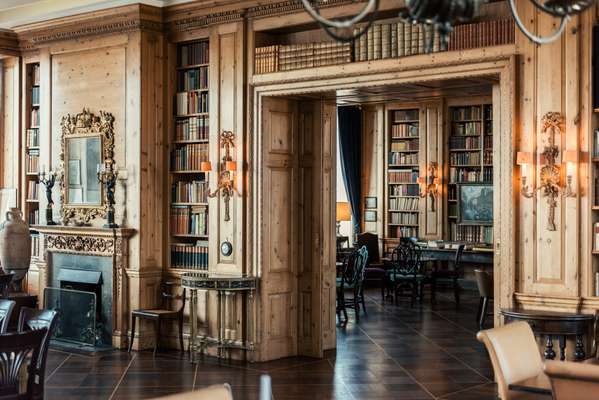
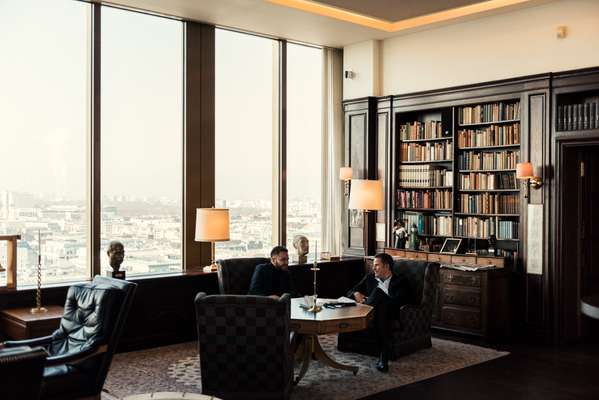
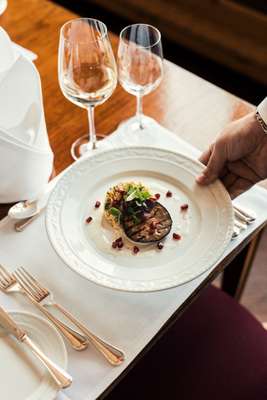
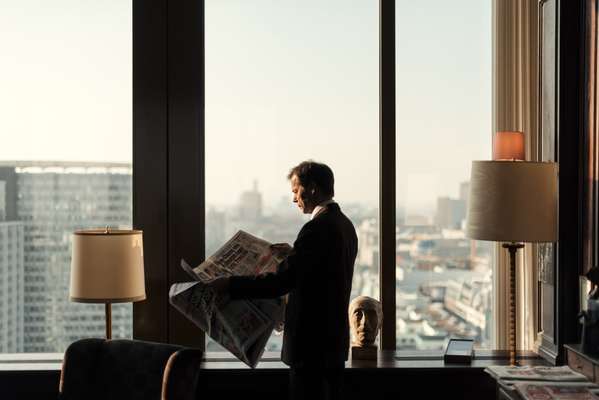
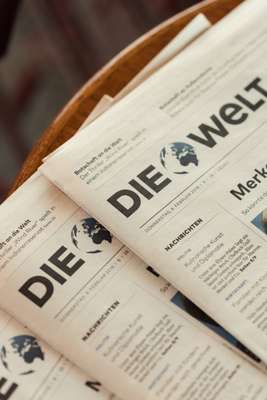
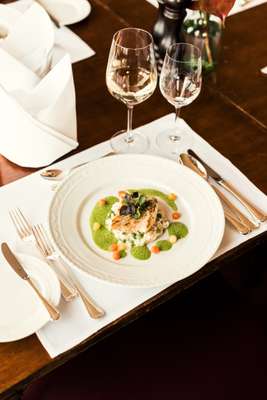
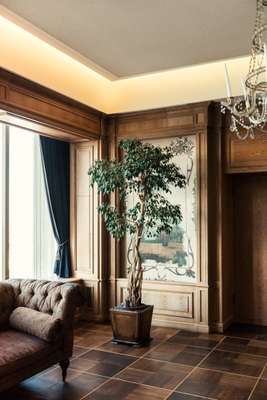
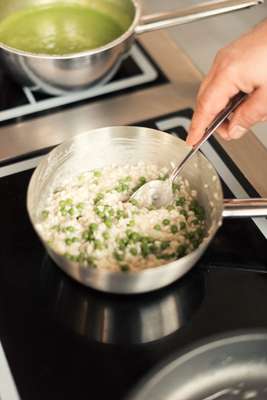
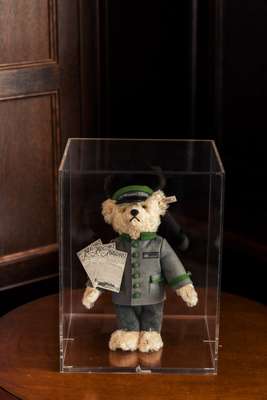

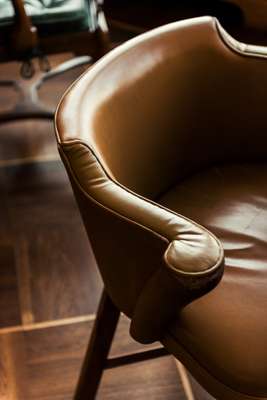
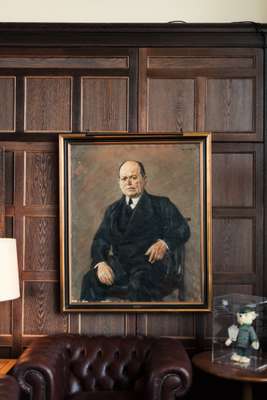
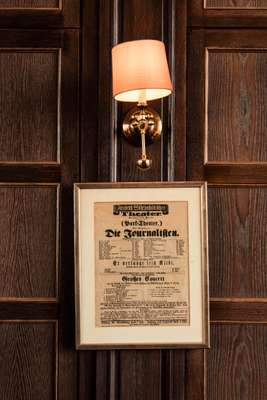
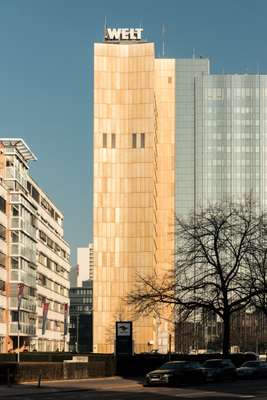
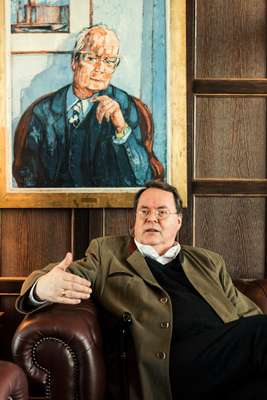
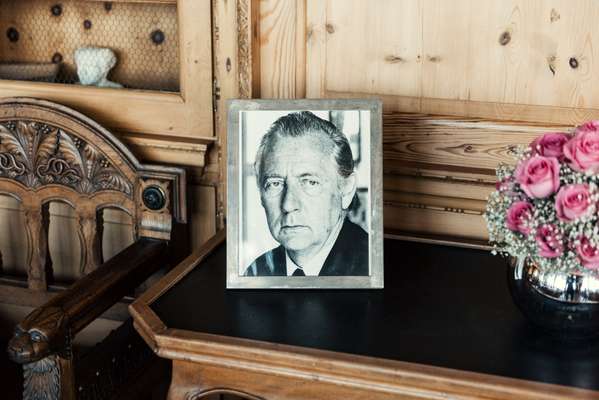
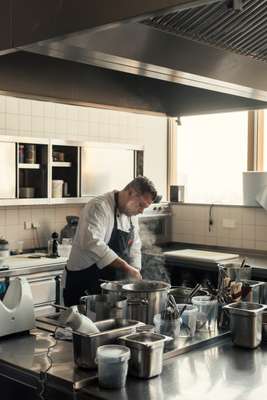
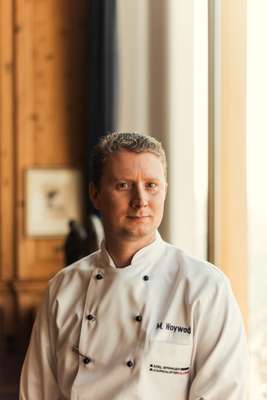
As Laabs tells it, Axel Springer was an Anglophile, a proud Prussian and a newspaper romanticist. Not satisfied with merely moving his company to Berlin in the 1950s, at a time when businesses were fleeing the city, he insisted on setting up shop in the bombed-out Kochstrasse, a stone’s throw from the Soviet sector.
After all, it had once been Berlin’s publishing district and the equivalent of Fleet Street in London. He watched in anguish as, in 1961, construction began on the Berlin Wall just 12 metres from the site of his new Springer headquarters. He had the last laugh, however, because his finished building towered above the wall and became a beacon of the free press to East Berliners.
Laabs says that it was Springer’s great regard for journalists that moved him to give them a private club just below his own office. “The journalist is the first master in my kingdom,” Springer said at the opening of the new headquarters. He wanted to provide a space for his own reporters and editors “to relax, to have a drink in exceptionally lovely rooms, to read the newspaper – in short, to be comfortable”.
Right from the start the club was open to even the lowliest newsroom trainee, while senior staff from other parts of the company only had access when entertaining guests. The rules have since been relaxed a little but not much. “We’ll make an exception for Mathias Döpfner and Friede Springer, who are regulars,” says Laabs with a wink, referring to the company chairman and the majority shareholder.
Friede Springer continued to use her husband’s office for nearly 20 years after his death but in 2004 the firm decided to unite his old quarters and the Journalisten-Club. The executives moved down a floor to make way for the journalists.
Laabs oversaw the move to enure that the new club retained the right look and feel, as well as bringing along many of the old space’s artworks. They include portraits of the heirs to the Ullstein publishing company, to whom Axel Springer had been close. The club’s Ullstein bar, named after the family, is the only indoor space in the company where smoking is allowed – a liberty that guests were making the most of when we visited. Many were enjoying hushed conversations ensconced in leather armchairs but at night, says the manager, the atmosphere here tends to be more rambunctious than in other parts of the club.
Despite their occasional lack of sartorial attention, the manager is happy that a younger generation of Axel Springer employees have discovered the joys of the Journalisten-Club. He has even created a special cocktail for them, Der Verleger (The Publisher): a mix of Scotch, angostura and soda that is reminiscent of a bygone era. The youngsters only really ruffle his feathers when they point at the patriarch’s photo and ask who it is. Then, with a frown, he’ll exclaim, “Without that man you wouldn’t even be here!”
Press dinner
Axel Springer himself used to dine with distinguished guests in his top-floor library but when the Journalisten-Club moved in 2004, the space was opened to all editorial and executive staff. A state-of-the‑art kitchen was installed but service continues the tradition established by the company founder: there are no written menus and the five staff and two trainees prepare just five dishes a day. The prices are competitive – the swede soup costs €5.50, the veal steak €16 – because the Journalisten-Club doesn’t have to make a profit. “People often ask whether we have a Michelin star,” says Schneider proudly. “We don’t, because the restaurant isn’t open to the public. But we easily could.”
Storied watering holes
1. Soho House, Hollywood: According to The Hollywood Reporter’s survey, this is the top power-lunch spot in one of the only places in the world where the phrase “power lunch” is used without irony. It’s a private club; marginally more accessible is number three on the list, Cecconi’s, also owned by Soho House founder Nick Jones.
sohohouse.com
2. Westminster Arms, London: It says much about the role of pubs in UK politics that several in the vicinity of the Houses of Parliament are fitted with their own division bells, which give MPs eight minutes to wobble back to the chamber in the event of a vote. The Westminster Arms, one so equipped, has recent notoriety as a preferred haunt of those who plotted Brexit.
westminsterarms.co.uk
3. Intercontinental hotel, Cairo: Stands on the site of the old Semiramis hotel, which in 1921 hosted one of the most famous diplomatic lunches in history: the well-lubricated Sunday wassail at which the UK’s secretary of state for the colonies, one Winston Churchill, negotiated the map of the modern Middle East. The odd dent in Jordan’s border with Saudi Arabia has since become known as “Winston’s Hiccup”.
intercontinental.com
4. Achnacarry Castle, Lochaber: In 1928 the heads of four of the great oil companies (Anglo-Persian, Shell, Gulf and Standard) met on this Scottish estate to divvy up the world’s petroleum market. The cynical – and arguably illegal – deal was done over salmon, grouse, venison and heroic quantities of fine wine. The holiday apartments now available here are self-catering, sadly.
achnacarry.com
5. BLT Steak, Washington: Few restaurants carry a nod of recognition outside the beltway like this steakhouse, known for its Wagyu. Staff are said to memorise flashcards of senators and it was here in 2017 that a New York Times reporter scooped Trump’s lawyers after hearing them discuss the Russia probe over steak frites.
bltrestaurants.com


